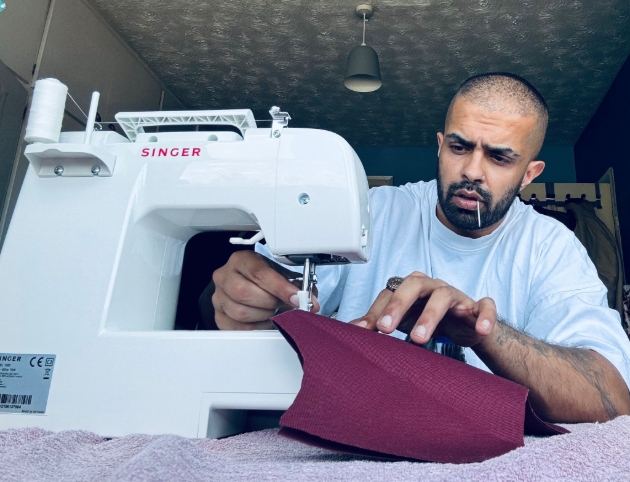Posted by Rachel Westall on 15 September 2025

John West, Director of Skills and Training at the UKFT (UK Fashion and Textile Association), said: "It was predicted that 450 apprentices would have started the Level 2 Sewing Machinist Apprenticeship in its first year in England, with 400 apprentices starting every year after that. The actual numbers fall way short of this, which is a real problem. British manufacturers are keen to bring clothing and textile production back from overseas to make supply chains shorter and more sustainable. At the same time, there's a fast-growing market for restored second-hand clothing."
With huge consumer appetite for pre-loved fashions and accessories, major brands and retailers are jumping on board. Shoppers can now snap up used goods at the likes of John Lewis, H&M and Selfridges – a trend that's creating growing demand for sewing machinists.

The UKFT - the UK's largest network for fashion and textiles - has helped increase funding for the delivery of sewing machinist apprenticeships in England. More recently, the organisation has responded to the Education Committee's inquiry into further education, highlighting the critical skills crisis in the fashion and textile industry.
John West added: "The fashion and textiles manufacturing sector is heavily dependent on Skilled Operatives who make textile related items, and we are currently experiencing huge problems in filling roles such as sewing machinists.
"Fashion and textiles is under-represented in the National Curriculum, particularly before the age of 16. There's simply not enough opportunity for young people who excel in hands-on work to develop their talents. Changing this could help tackle a stigma that's holding back sewing skills and open up the industry to a new generation of talent. Programmes like The Great British Sewing Bee are great for encouraging people to think differently about sewing and the career opportunities it can offer."
To support the industry, UKFT (as the Sector Skills Body for the fashion and textile industry) has developed an online course, written by industry for industry. 'The Production Sewing Machinist Programme' is a series of seven courses, including 48 lessons and over 100 activities that combine online and practical learning. https://ukftacademy.org/
Andrew Hill at ASC, concluded: ""A shortage of sewing skills is a looming problem. More and more retailers want to compete with eBay and Vinted, attracting shoppers who like the bargains and sustainability of buying pre-loved. Demand for sewing machinists will increase and risks widening an already large skills gap.
"The popularity of The Great British Sewing Bee is a welcome opportunity to place a positive spotlight on sewing skills. Skilled sewing machinists are crucial to helping create sustainable, circular supply chains."
The final of the 2025 Great British Sewing Bee airs on Tuesday, September 16, 2025, at 9:00 PM on BBC One and BBC iPlayer.
[1] Future Market Insights data, which predicts Europe’s secondhand goods industry will grow from USD$38.4billion in 2025 to $US116.6billion in 20235 (approximately £86billion.)